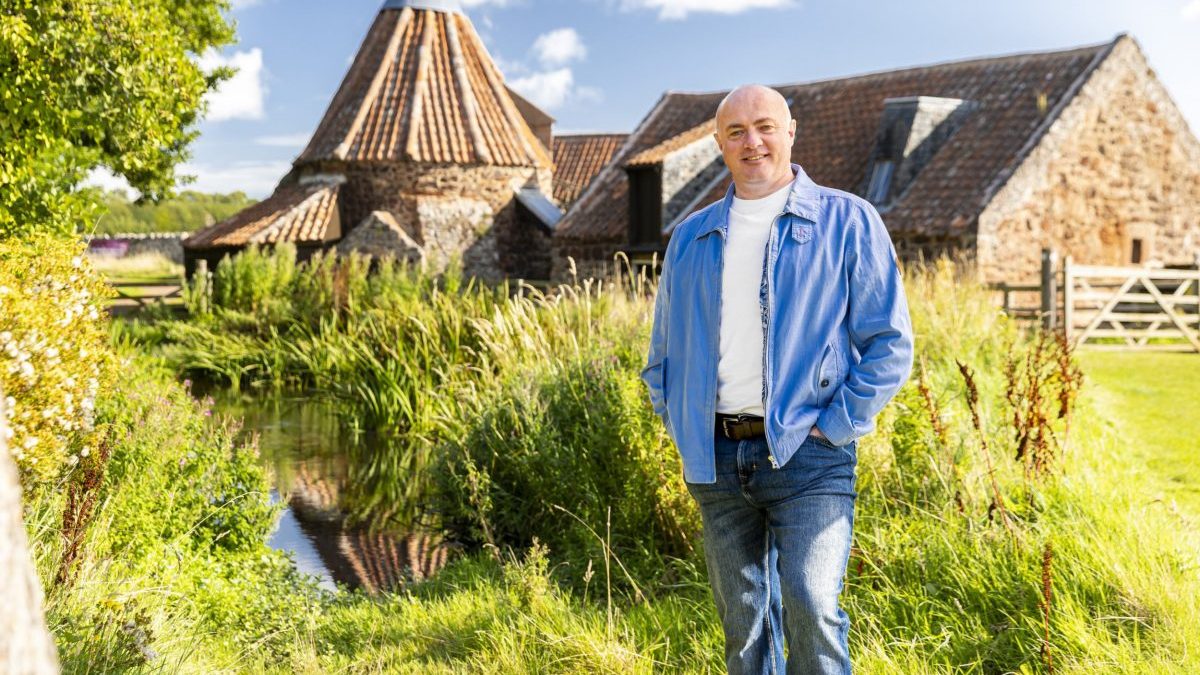In our How I Manage My Money series we aim to find out how people in the UK are spending, saving and investing money to meet their costs and achieve their goals.
This week we speak to Graham Wells, 52, who lives in East Lothian, Scotland, with his wife, Gillian, 49, and their two sons, Adam, 18, and Fraser, 15. Graham, a financial coach and chartered financial planner, used to be an impulse buyer relying on credit cards before radically changing his approach to money. He has £90,000 in a self-invested personal pension (SIPP) and a healthy defined benefit pension. Graham thinks the state pension triple lock will need to be changed to a double lock.
My monthly income: I take £1,045 from my financial coaching business, GroWiser, each month. I also take £5,000 in dividends from my business each quarter. A lot of my income from my business gets reinvested back into the business. Gillian works in the not-for-profit sector as an events manager for charities. She earns a similar amount to me, which really helps our finances to feel balanced. We also have two rental flats in Edinburgh, which bring in an income of up to £10,000 per year after costs.
Our monthly outgoings: Gillian and I each pay £1,250 each into a joint account every month. This joint account covers things like our mortgage. We allocate £550 per month from our main joint account into a separate joint account with Starling Bank. This is our groceries budget and really helps us track spending with minimum effort. Mortgage, £1,200; council tax, £340; utility bills, £225; camper van insurance, £34; broadband and TV, £65; life insurance policies, £95; house insurance, £51; boiler cover, £37; gym, £28; Netflix, £6; car fuel, £200; eating out, £100; money into children’s junior ISAs, £50, so £25 each. I’m adding £50 a month to my stocks and shares ISA and £500 per month to a self-invested personal pension (SIPP). My mobile bill is paid via my business and costs £90 a month.
I grew up in an old mining village in Scotland. My family wasn’t wealthy, but they weren’t poor either. I lived in a bigger house than many of my friends, but we didn’t holiday abroad. My dad ran a motor spares business, while my mum had a job at a bank.
I decided university wasn’t for me. I didn’t think I’d have the self-discipline to study and wasn’t sure what I wanted to do as a career. Rather than studying, I embarked on a career in financial services. At 17, I was working at the Bank of Scotland, earning just over £5,000 a year. I trained and qualified to be a financial adviser in my late 20s.
Later on, I moved into learning and development roles within the financial sector, earning £60,000 a year before tax. Before running my business full-time, I was working as a contractor for banks and financial institutions, making between £80,000 to £90,000 per year before deductions.
I was an over-spender when I was in my 20s and into my early 30s. I’d pay for holidays, cars, socialising and everything else using credit cards and ended up in debt to the tune of a five-figure sum. I’ve become much more intentional with how I spend money over the years.
I set up my financial coaching business, GroWiser, during the pandemic in 2020, before quitting my corporate work and going full-time with it in 2021. I now earn much less than I did in my corporate roles, but hope to increase my annual dividends from the business to £30,000 per year. My hours are variable and can be between 20 to 40 per week. I help people think about how they feel and behave around money rather than solely focusing on the provision of technical advice.
There is a lot of speculation about what Rachel Reeves has in store for the upcoming Budget. Speculation can prompt people to take risky and damaging financial decisions. On the basis of speculation, people could, for example, withdraw large sums from pensions, which could be damaging. This is something that concerns me.
In terms of my own finances, I add £50 to a stocks and shares ISA, which has £7,500 in it. I also add small sums to cryptocurrency and premium bonds on an ad hoc basis. My wife and I add £50 a month to our children’s junior ISAs. Our son, who is 18, has £16,000 in his junior ISA.
I’d say saving money into my SIPP is a moderate priority for me. I have a defined benefit pension scheme from my former career in finance which is set to provide approximately £18,000 per year with a retirement age of 60. My SIPP with Hargreaves Lansdown has about £90,000 in it.
When I’m 55, I plan to use some of my pension money to travel around Europe with my wife as part of a mini-retirement. However, I have no plans to stop working and will continue to run my financial coaching business for as long as I can.
I think I could survive on the state pension alone if I needed to, but I don’t think life would be much fun. I believe the triple lock will need to be changed to a double lock in time as it is not sustainable as it is. The state pension age is also likely to need to continue to rise.
We own a five-bedroom house in East Lothian which we purchased in 2011 for £360,000. Our mortgage rate is 2.79 per cent and this is fixed until next year. We also have two rental flats in Edinburgh.
I’m fascinated by people’s thoughts and behaviours around money, but it is no longer a key motivator in my own life. It does, however, give me the opportunity to live a balanced life. I now have control over my time, which I didn’t have during my corporate career. Looking ahead, I can see myself working in my business well into my 70s. I also hope to be able to travel more with my family and I’m looking forward to my six-month long mini-retirement at 55.
Want to take part in How I Manage My Money? Email money@theipaper.com
Your next read


